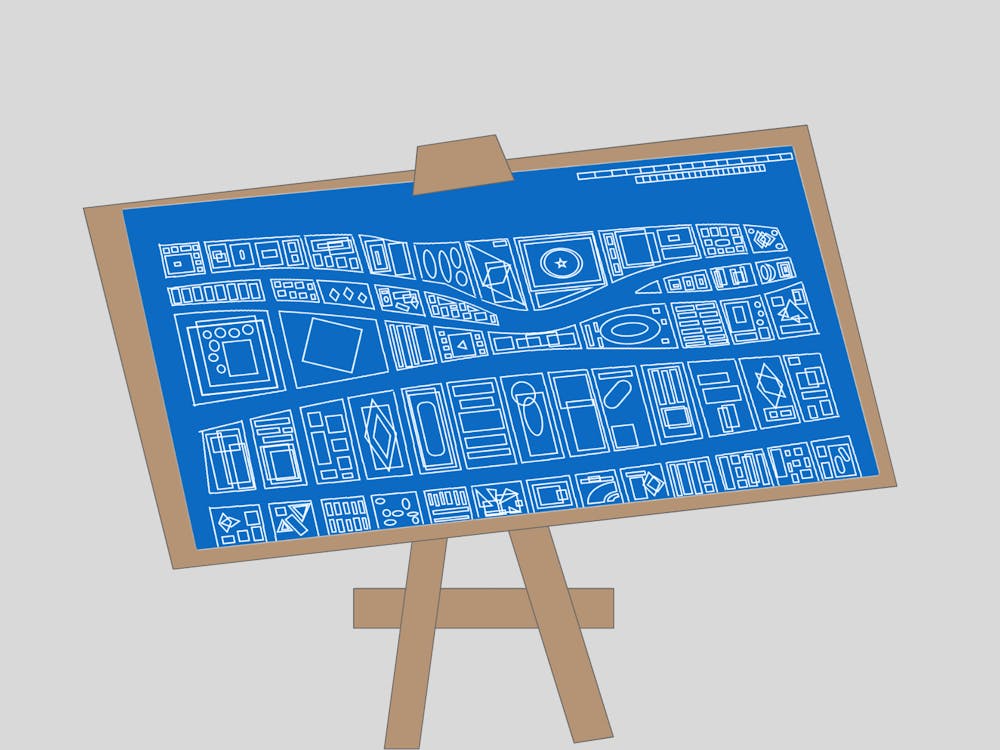We wake up on the hard floor of the administrative building at the University of Mary Washington for the fourth day — backs aching, emotions draining — and we question why we are here. We share one trait: we are all Virginia college students. We attend the University of Mary Washington, University of Virginia, Virginia Tech, College of William and Mary, James Madison, Old Dominion, Christopher Newport and Virginia Commonwealth Universities, but this week we all occupy the same tile floor. Why did we choose to confine ourselves in this cramped hallway, monitored by guards and physically barred from the outside world? The decision to host a sit-in at UMW was neither lighthearted nor easy. It was made by desperate students working tirelessly, through every possible avenue, to make our voices heard by our university governing boards. We have received sustained denial.
Divest UMW is a student group dedicated to removing the university's investments in the fossil fuel industry. Our group has spent the past two years escalating their campaign, most notably with a 200 person march across the university’s campus. Divest UMW has garnered support from one-fourth of the student body, over one-third of the faculty, and 3,772 (and counting) signatures on an online petition. The overwhelming support won Divest UMW a detailed presentation on divestment to the Board. Our group asked for the creation of a divestment subcommittee to explore divestment options.
One month later, on Mar. 18, Rector Holly Cuellar rejected the proposal, dismissing the concerns of thousands of her constituents without a deliberation or a public vote. She explained her decision and then quickly moved the Board meeting onto another topic. The decision shocked not only the Divest UMW group, but it also resonated with students across the state. It was a bleak reminder that the student voice in university governance is too often overlooked. The sentiment is felt by students all over Virginia who are actively seeking student input into the decisions made by their Boards.
This past week, students at the University of Virginia, UMW’s former sister school, were yet again reminded of the lack of accountability and transparency of their Board of Visitors. Student protesters marched to the doors of the public Special Collections Library, where the Board now holds its meetings, after finding out about a decision to raise tuition over 13 percent for newly accepted in-state students as well as a 3.9 percent increase for all current undergraduates. However, the protestors were immediately met with locked doors guarded by police. Student groups such as U.Va. Students United and the Latino Student Alliance could only wait silently on the steps as the Board passed the tuition hike despite much concern over the impact this decision would have on middle- and low-income applicants.
The voices of these student bodies were stifled by their Boards through secrecy, literal barriers of locked and guarded doors and apathy. At this point the students, who are the most important stakeholders of our universities, have no real influence on major decisions made by their governing bodies. Divestment and affordable education are just two campaigns facing the same roadblocks of indifference and rejection that have been repeatedly experienced. Erin Raderstorf, a sophomore at the University of Mary Washington, believes this lack of communication should be concerning to all university students, whatever their interests: “It does transcend divestment. This is why I am supporting this movement so much, because my voice as a student could be potentially ignored on another issue. The Board’s blatant disrespect for the student voice is something that should concern all students, not just those concerned with one particular issue.”
So we sit. We have exhausted the conventional methods of connecting with our governing bodies. We have sent emails, attended meetings and given presentations, just to be met with a lackluster effort from our Boards. These issues are not trivial to us. This is not a class project or an experiment. These are our educations, our futures and our voices. We will continue making noise until we become so undeniably loud that our administrators will have no choice but to listen.
Caroline Bray is a first-year in the College and and Jake Turner is a second-year in the Graduate School of Arts and Sciences. Colleen Cosgriff is a second-year and Sarah Kinzer is a first-year at the University of Mary Washington.




